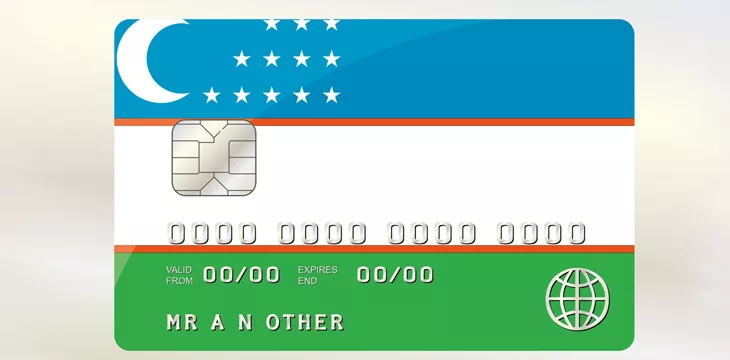|
Getting your Trinity Audio player ready...
|
Uzbekistan is marching forward with its digital currency regulatory sandbox and is keen on exploring the option of digital currency cards for consumers.
In a statement issued by the country’s National Agency for Perspective Projects (NAPP), the regulator confirmed the grant of approvals to two commercial banks to issue plastic digital asset cards.
The statement names Kapital Bank and Ravnaq Bank as participants in the pilot project involving digital asset cards. Dubbed UzNEX, global financial services provider Mastercard (NASDAQ: MA) will power the cards to allow for on and off-ramp fiat transactions from selected digital currency platforms.
The pilot will see both commercial banks probe the integration of digital asset cards with existing banking systems and Mastercard’s payment system. NAPP is eyeing a test rollout of the offering from both commercial banks before the end of the year as it looks to improve the state of digital currency services in the country.
“The participants of the special regime will test the solution for integrating the automated banking system, the information system of the crypto-exchange, the processing center of the bank, and the MasterCard international payment system,” NAPP’s announcement read.
Kapital Bank and Ravnaq Bank made NAPP’s exclusive list of firms selected to participate in the “Special Regulatory Sandbox Regime.” The only other firm taking part in the pilot is state-owned technology outfit Uzinfocom deployed to experiment with non-fungible token (NFT) certificates for names in the “.UZ” domain.
Uzinfocom’s study with NFTs began at the tail end of April, with a test launch in May, which was a considerable success.
After years of operating with a free rein, Uzbekistan’s regulators began tightening the screws for digital asset service providers in the country. The first victims of the crackdown were global players like Binance, Bybit, Huobi, and the defunct FTX, with the affected firms scrambling to begin negotiations with Uzbek authorities.
The crackdown extended to miners in the country as it began a crusade against illegal mining entities while training a specialized unit to combat digital asset crimes.
Even tighter restrictions for industry players
In October 2022, the country ordered digital currency exchanges to pay $11,000 monthly to support the national budget. Individual miners are expected to pay $270 monthly, while mining pools and custody service providers must pay $2,700 and $135, respectively.
“Failure to pay the fee within one month constitutes grounds for suspension of the license,” read the announcement. “If the company does not pay the fee for two months within a year, the license may be canceled.”
With a new digital currency regime in place, firms are expected to apply to the NAPP for operational licenses or face strict penalties for operating outside the purview of existing regulations.
Law & Order: Regulatory Compliance for Blockchain & Digital Assets

 02-18-2026
02-18-2026 




